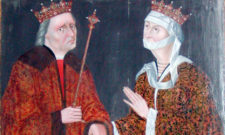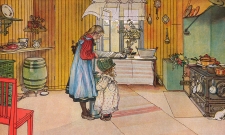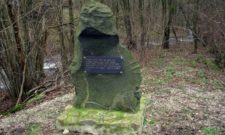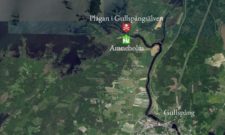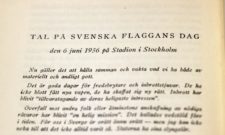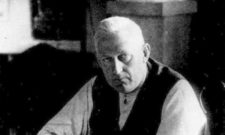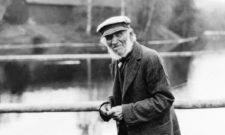Shop our historical maps
History
There was a man called Engelbrekt

Apr
Today, on Engelbrekt Day, we remember the freedom fighter Engelbrekt Engelbrektsson. We also remember the alternative story of Sweden that can be seen in the seemingly eternal struggle of our ancestors against oppression and indignity.
"Thet war en man han heet Engilbrikt" begins a song that was written down around 1439, probably by the bishop of Strängnäs Thomas Simonsson. The song of Engelbrekt describes the hardships and distress suffered by the Swedish people under King Erik of Pomerania, and Engelbrecht's struggle for freedom and eventual death.
The Engelbrekt Rebellion was a reaction, a final release of power, to the exploitative bailiwick of the foreign king Erik of Pomerania. The peasants defended the right to the fruits of their labour. They defended themselves from state encroachment. They defended their freedom.
The rebellion originated with a particularly ruthless Danish bailiff named Jösse Eriksson, who collected taxes in most of Västmanland, Bergslagen and Dalarna. Read more about him here.
Engelbrekt was chosen as the representative to bring the complaint of the commoners to the king. They demanded that the bailiff be tried and dismissed. When this did not happen, all hell broke loose and the bailiffs marched to Västerås in 1434. The rest is history.
Here in the country is a man named Engelbrekt Engelbrektsson, a Swede born in Dalarna, where copper and iron are mined. He has gathered crowds of forty to fifty thousand men and can surely get more when he wants. Under his leadership they have burned and conquered many towns, forts and villages. They came marching to Stockholm, on one side of which they encamped like the heretics outside Danzig. [...] The Dalkarls' request and desire is to have a king in Sweden and they want to drive King Erik out of the three kingdoms and they want to be lords themselves.
Berndt Osenbrygge to the Council of Danzig, Stockholm 1 August 1434
Engelbrekt was murdered on 4 May 1436 on the present Engelbrektsholmen in Stora Mellösa parish in Närke, by the nobleman Magnus Bengtsson (Natt och Dag). His memory lives on in a reworked version of the song about Engelbrekt, called Freedom song, also written down in 1439 by bishop Thomas Simonsson in Strängnäs.
Here are a few stanzas:
"Freedom is the noblest thing
Who may be sought all around,
The freedom well can bear.
Do you want to be a hero yourself,
You love freedom more than gold,
For freedom follows honour.Freedom may be likened to a tower,
Der guardian blows his horn:
It sounds so clear and wide!
If from that tower out you go
And another it in hands gets,
Then you shed tears fighting.If you have freedom in your hand,
Good luck and tie the ribbon,
That she will not forgive you;
She looks like a falcon, proud and quick;
If once away he has flown,
You will not get him back. [...]A bird protects its nest on a twig,
Bishop Thomas Simonsson, Strängnäs, 1439.
So do the wild animals for sure,
Now notice what you should do!
God has given you heart and soul:
Be free rather than someone else's slave,
As long as you can move!"
Subscribe to YouTube:
If you appreciate Allmogens independent work to portray our fine Swedish history and Nordic culture, you are welcome to buy something nice in the shop or support us with a voluntary donation. Thank you in advance!
Support Allmogens via Swish: 123 258 97 29
Support Allmogens by becoming a member
Support Allmogens in your will
